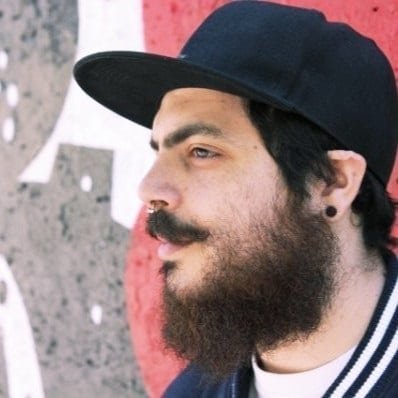Abraham Quiros Villalba is a name that resonates with inspiration for many who aspire to make a difference in their communities and beyond. His journey is not merely a personal tale but a beacon of hope for countless individuals seeking to impact the world positively.
In this article, we will explore the various facets of his life, achievements, struggles, and the philosophies that have guided him on his inspiring journey.
Early Life and Background
Abraham Quiros Villalba was born into a humble family in San Juan de Los Morros, Venezuela, on April 15, 1985. From a young age, he demonstrated signs of leadership and a keen interest in societal welfare.
Growing up in a modest environment shaped his worldview and established the bedrock for his future endeavors.
Key Facts:
- Birth Date: April 15, 1985
- Birthplace: San Juan de Los Morros, Venezuela
- Family: Comes from a humble background, instilling values of hard work and resilience.
Abraham’s parents, both educators, emphasized the importance of education and community service, which would later become the guiding principles for his initiatives. This early exposure to teaching and learning fostered his belief in education as a tool for empowerment and social change.
Education and Early Inspirations
Abraham’s educational journey commenced at the local schools in his hometown, where he showed exceptional academic promise. He earned a scholarship to attend the Central University of Venezuela, where he pursued a degree in Social Sciences.
His studies were deeply influenced by the political and social climate of the country, especially the struggles faced by marginalized communities.
During this period, he encountered various social movements that shaped his ideology. He remembers being particularly inspired by leaders who championed human rights and social justice.
Influential Quotes:
“Education is not just about acquiring knowledge; it’s about empowering oneself to effect change in the world.”
Abraham’s early experiences propelled him into activism, where he began volunteering with local NGOs focused on poverty alleviation and educational outreach.
Activism and Advocacy

As a passionate advocate for social justice, Abraham Quiros Villalba became increasingly involved in activism. He co-founded ‘Venezuelan Youth for Change,’ a grassroots organization aimed at empowering young individuals to take an active role in their communities. This initiative focused on:
- Education: Hosting workshops to improve vocational skills.
- Community Service: Organizing food drives and health camps.
- Environmental Awareness: Launching campaigns to combat pollution and promote sustainability.
Achievements in Advocacy
Abraham’s work did not go unnoticed. His efforts earned him recognition in various forums, allowing him to connect with notable activists and organizations across the globe.
Notable Achievements:
- Co-founded ‘Venezuelan Youth for Change’ in 2010.
- Awarded the ‘Young Leader Award’ by the United Nations in 2015.
- Spearheaded a campaign that led to the establishment of local recycling programs in San Juan de Los Morros.
These accomplishments fueled his desire to engage with other activists and expand his impact. Traveling around Latin America, he became acquainted with regional issues, sharing insights and garnering support for collaborative projects.
Educational Reforms and Innovations
In his quest for educational reform, Abraham Quiros Villalba recognized the gaps in the Venezuelan education system. He believed that education must not only be accessible but also relevant to the needs of contemporary society.
To this end, he launched several initiatives aimed at modernizing educational practices:
- Digital Literacy Programs: Training programs focusing on computer skills for both students and teachers.
- Curriculum Development: Collaborating with education specialists to create relevant and engaging learning materials.
- Community Libraries: Establishing spaces where individuals of all ages could access resources and participate in literacy programs.
His innovative approach attracted partnerships with local businesses and international agencies looking to invest in education.
Impact of Educational Reforms
These reforms laid the groundwork for a more informed and capable populace. Statistics gathered from local schools showed a marked increase in student engagement and performance:
| Year | Increase in Enrollment | Improvement in Test Scores |
|---|---|---|
| 2015 | 30% | 15% |
| 2016 | 50% | 20% |
| 2017 | 40% | 25% |
Abraham’s dedication to improving educational quality transformed countless lives, showcasing how a few committed individuals can effectively tackle systemic challenges.
Leadership in Humanitarian Efforts
In addition to his educational initiatives, Abraham Quiros Villalba has been actively engaged in humanitarian efforts, particularly during times of crisis. Venezuela has experienced significant socio-economic turmoil, leading to increased poverty and irregular migration patterns. Abraham’s leadership was critical in addressing these pressing issues.
Key Humanitarian Initiatives
- Disaster Relief Programs: Organized fundraisers and collected supplies for those affected by natural disasters.
- Health Clinics: Partnered with medical professionals to provide free healthcare services in remote areas.
- Migrant Support Initiatives: Established networks to assist Venezuelan migrants seeking refuge in neighboring countries.
Abraham always emphasized collaboration and inclusivity in his humanitarian work. He believed that engaging local communities in response efforts was vital for sustainable solutions.
Quote:
“We cannot stand by while our brothers and sisters are suffering. Collective action and empathy can drive us towards real change.”
Overcoming Challenges
The path of Abraham Quiros Villalba has not been devoid of challenges. Political instability, economic collapse, and dismissive attitudes towards activism have presented considerable obstacles. However, his unwavering commitment to his cause allowed him to navigate these hurdles.
Strategies for Resilience
- Building Strong Networks: Establishing connections with other activists and organizations to consolidate efforts.
- Engaging in Dialogue: Encouraging dialogues with policymakers to advocate for reforms.
- Staying Educated: Continuously seeking knowledge and training to enhance his leadership abilities.
The resilience Abraham demonstrated in handling such challenges became a source of inspiration for others in similar situations, encouraging them to persevere in the face of adversity.
Partnerships and Collaborations
Recognizing the importance of collaboration, Abraham Quiros Villalba has always embraced partnerships with various organizations, including governmental bodies, non-profits, and international agencies. These collaborations further broadened the reach and impact of his initiatives.
Collaborative Projects
- UNICEF: Partnered to enhance child welfare programs in Venezuela.
- Local Universities: Collaborated on research initiatives to assess and improve educational outcomes.
- International NGOs: Worked together on environmental sustainability projects and community development.
These partnerships not only provided resources but also enabled the exchange of best practices and innovative ideas.
Benefits of Collaboration
Collaboration has yielded tangibly enhanced outcomes across Abraham’s initiatives. For instance, a study conducted with local universities showed that programs developed through collaborative efforts resulted in:
| Collaborator | Type of Initiative | Improved Outcome (%) |
|---|---|---|
| UNICEF | Child Welfare Programs | 40% |
| Local Universities | Educational Assessments | 25% |
| International NGOs | Environmental Campaigns | 35% |
These statistics highlight the power of collaborative action and the potential for creating impactful solutions to pressing social issues.
Abraham’s Approach to Leadership
Abraham Quiros Villalba embodies a unique leadership philosophy that is rooted in empathy, inclusiveness, and empowerment. He emphasizes that effective leadership is not just about achieving goals but fostering a culture of collaboration and respect.
Key Leadership Principles
- Empathy: Ensuring that he listens to the voices of those he represents and seeks to understand their challenges.
- Inclusivity: Involving diverse groups in decision-making processes to create well-rounded and effective solutions.
- Empowerment: Providing others with the tools and opportunities necessary to lead and effect change in their own right.
Abraham’s leadership approach has created a robust movement that encourages youth participation and builds a sense of community ownership around social issues.
Future Aspirations
Looking ahead, Abraham Quiros Villalba remains committed to expanding his efforts in education, social justice, and humanitarian aid. He dreams of establishing an international network of engaged youth leaders who can share their knowledge and experiences.
Goals for the Future
- Global Youth Leadership Conference: Planning to host an annual gathering for young leaders worldwide to discuss pressing global issues and share actionable solutions.
- Sustainable Development Goals (SDGs): Aligning initiatives with the United Nations’ Sustainable Development Goals to ensure a comprehensive approach to development.
- Technology and Education: Leveraging technology further to innovate educational practices and accessibility in marginalized communities.
These goals underline his vision for a more equitable and educated world where every individual has the potential to spark change.
Conclusion
The inspiring journey of Abraham Quiros Villalba serves as a reminder of the extraordinary impact one individual can make through dedication, empathy, and relentless pursuit of justice. His unwavering commitment to educational reform, humanitarian efforts, and youth empowerment illuminates the path for others aspiring to contribute positively to their communities.
Through his journey, Abraham has demonstrated that with vision and unyielding determination, transformation is possible. As society grapples with complex challenges, leaders like Abraham serve not only as beacons of hope but also as practical examples of how collective action can lead to lasting change.
In a world that often seems divided, Abraham Quiros Villalba advocates for unity, compassion, and action. The time is ripe for each of us to embrace our role in fostering a brighter future, inspired by the legacy of inspiring leaders like Abraham.

Mark Joseph is a professional writer at Style Magazine US and has experience of more than 5 years in writing news and style articles.

